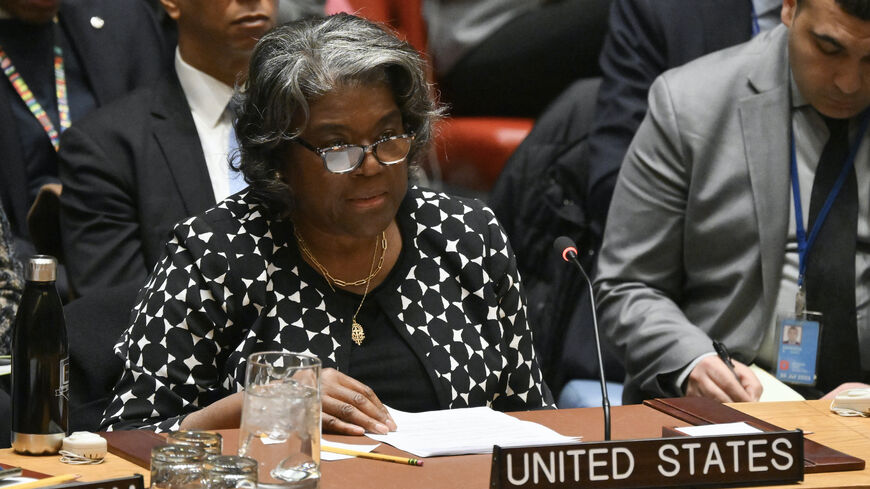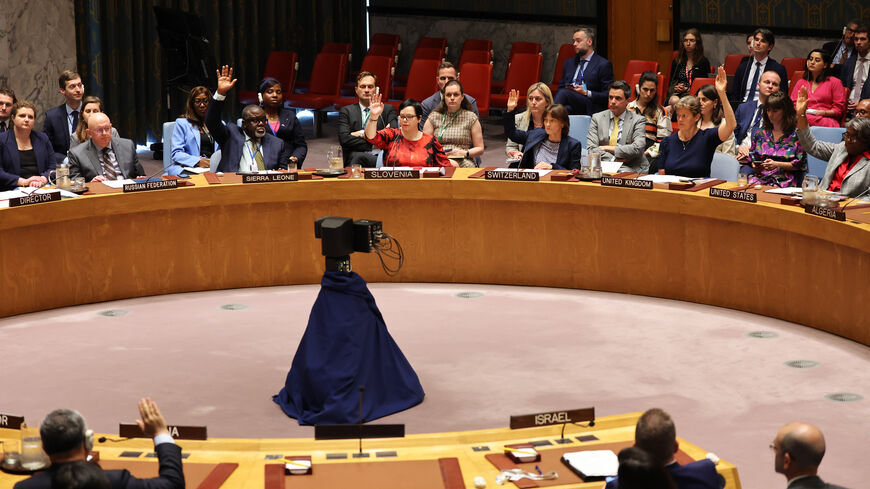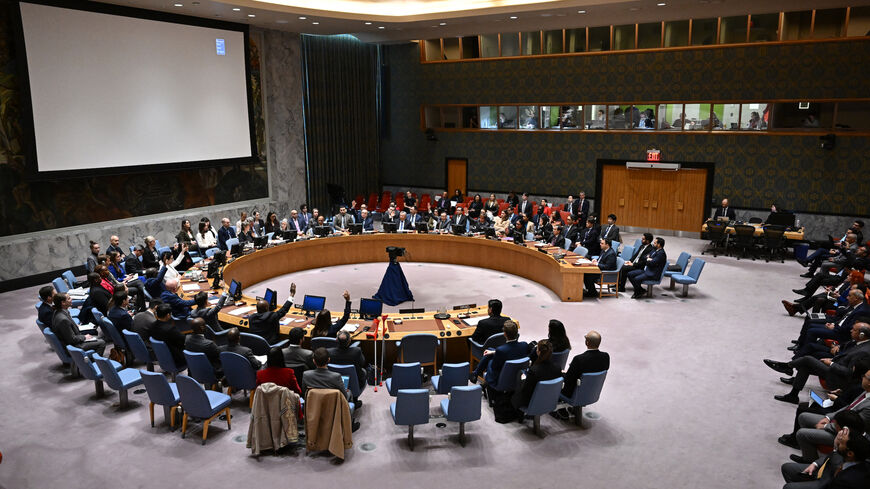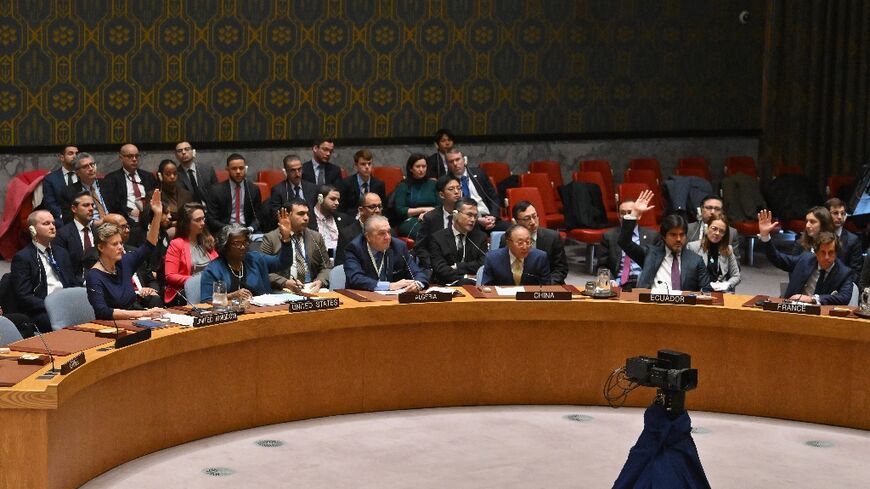UN Security Council adopts Gaza cease-fire resolution after US abstains
The vote marks the first time the UN Security Council has backed a cease-fire in Gaza and comes days after Russia and China vetoed a similar measure put forward by the United States.
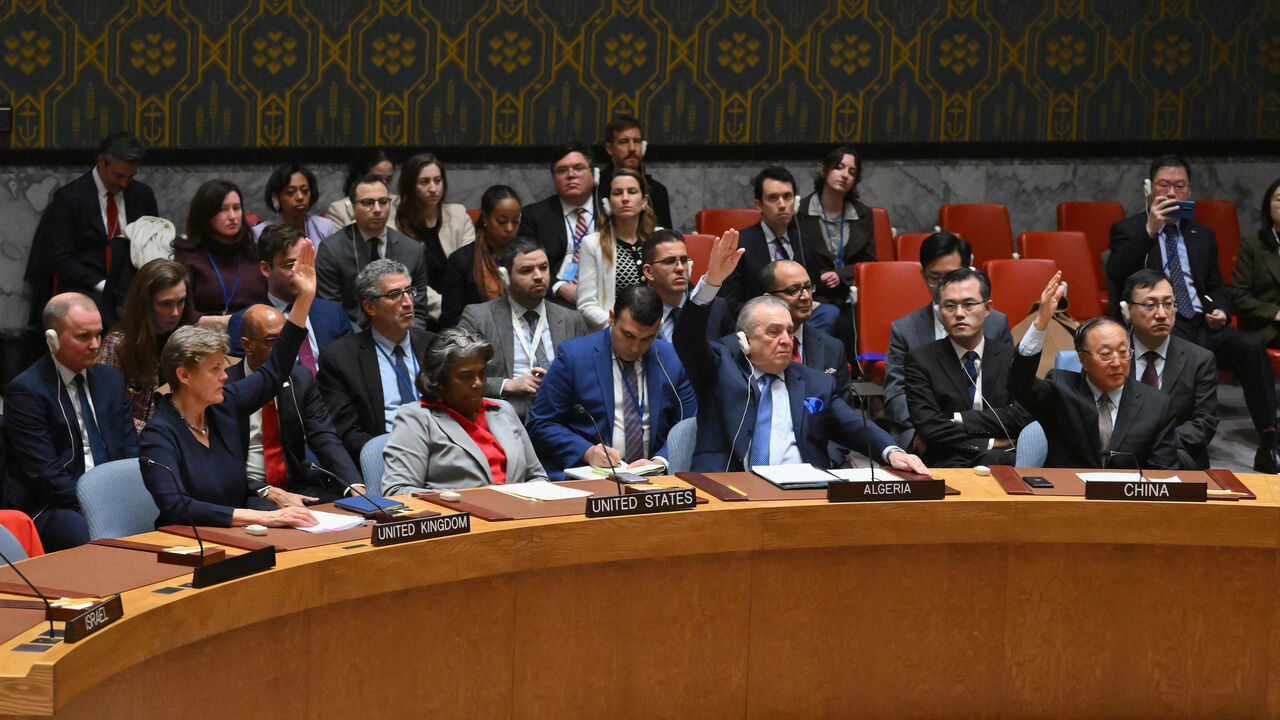
WASHINGTON — The UN Security Council on Monday adopted a resolution calling for an “immediate” cease-fire in the Gaza Strip after the United States abstained from the vote.
The resolution, which passed with the support of the council’s 14 other members, was criticized by Israel for not conditioning a cease-fire on the release of the remaining captives taken by Hamas. The US decision to let the resolution pass rather than use its veto prompted Israeli Prime Minister Benjamin Netanyahu to call off a planned trip to Washington for his senior advisers, Ron Dermer and Tzachi Hanegbi.
The resolution “gives Hamas hope that international pressure will allow them to get a cease-fire without freeing our hostages,” Netanyahu’s office said in a statement. “In light of the change in the American position, Prime Minister Netanyahu has decided that the delegation will not travel to the US.”
The United States has used its veto three times during the Gaza war to shield Israel, its ally, from cease-fire resolutions that didn’t underscore Israel’s right to self-defense or condemn Hamas’ killing of some 1,200 people on Oct. 7. Most recently, the United States vetoed an Algerian-sponsored cease-fire resolution on Feb. 20 that it said would jeopardize negotiations over a hostage deal.
The latest resolution, which was sponsored by the council’s 10 nonpermanent members, called for an “immediate” cease-fire during the Muslim holy month of Ramadan’s remaining two weeks, “leading to a lasting sustainable cease-fire” between Israel and Hamas. It also urged “the immediate and unconditional release of all hostages" and demanded the “need to expand the flow” of humanitarian aid into Gaza.
“It is our obligation to put an end to this bloodbath before it is too late,” said Algeria's UN ambassador, Amar Bendjama, the only Arab member of the top UN body. “Finally, the Security Council is shouldering its responsibility.”
Speaking after the rare American abstention, US Ambassador to the UN Linda Thomas-Greenfield said the Biden administration supported many of the resolution’s "critical objectives" but was disappointed the text did not include a condemnation of Hamas.
On Friday, Algeria joined veto-wielding members Russia and China to vote against a US-drafted resolution that denounced Hamas’ attack on Israel, while describing an “immediate and sustained cease-fire” as an "imperative."
“They have shown time and time again that they are not actually interested in advancing a durable peace through diplomatic efforts,” Thomas-Greenfield said of US adversaries Russia and China.
Before voting got underway on Monday, Moscow sought to insert the word “permanent" into the resolution’s demand for a cease-fire after Washington successfully pushed for its removal from an earlier draft. The Russian bid to amend the resolution failed with only three votes in favor.
“We are disappointed that it did not make it through. But nevertheless, we believe it is fundamentally important to vote in favor of peace,” Russia’s UN ambassador, Vasily Nebenzya, told members after the vote.
The resolution’s passage comes as the Biden administration is working to stave off an Israeli offensive in Rafah, the southern border city where more than half of Gaza's population is sheltering. US National Security Council spokesperson John Kirby said US officials were planning to discuss “viable alternatives” to an invasion with Dermer and Hanegbi before Netanyahu canceled their visit.
“We're very disappointed that they won't be coming to Washington, DC, to allow us to have a fulsome conversation with them,” Kirby told reporters.
Israeli Defense Minister Yoav Gallant, who is in Washington as part of a separate Israeli delegation, was still expected to meet with Secretary of State Antony Blinken and national security advisor Jake Sullivan on Monday. Before his meetings, Gallant warned Israel has “no moral right to stop the war in Gaza” until the hostages are freed.
The UN Security Council vote came as the death toll from Israel’s war in Gaza climbed higher on Monday. The Health Ministry in the Hamas-run enclave said at least 32,333 Palestinians in the territory of 2.3 million have died in the five-month war.
The Biden administration has sharpened its criticism of Israel’s military campaign in recent months, but Kirby denied that the US abstention on Monday amounted to a shift in a policy.
“Nothing has changed about our policy — nothing,” Kirby said. “We still want to see a cease-fire, and we still want to get hostages out — all of them. And we would still want to see more humanitarian assistance get in to the people of Gaza.”



